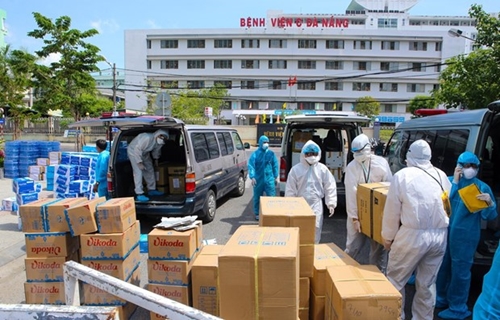Vietnam acted quickly and decisively to contain the COVID-19 pandemic by closing its borders, prohibiting flights from other countries, no longer issuing visas to foreign nationals, contact tracing, quarantine, and a short-lived nationwide shutdown, the article said.
Government actions would have been diluted, however, if the people had not cooperated by wearing face masks, observing social distancing and, at one point, only leaving their homes for essentials.
    |
 |
|
Essential necessities to support the medical team and the patient at Hospital C in Da Nang |
Vietnam is well-positioned with a younger generation that is more individualistic than that of its parents because of their country’s integration into the global community, the Internet, and the fact that they are growing up in a time of peace, yet still possesses a strong sense of solidarity (“mutual support within a group”) and identification with the collective, which is heightened in times of crisis.
COVID-19 was presented and understood as an invisible enemy against which the people had to unite. This solidarity ensures that most people will behave in an empathetic and compassionate manner when need be.
The article cited a British Council New Generation Vietnam survey as saying that 72 percent of respondents believe their country will be better off in 15 years than it was before 2019, which reflects the well-documented optimism of the Vietnamese people.
Their concerns and suggestions focus on corruption, political engagement, environmental protection, gender equality, and improving the economy and entrepreneurship.
Source: VNA